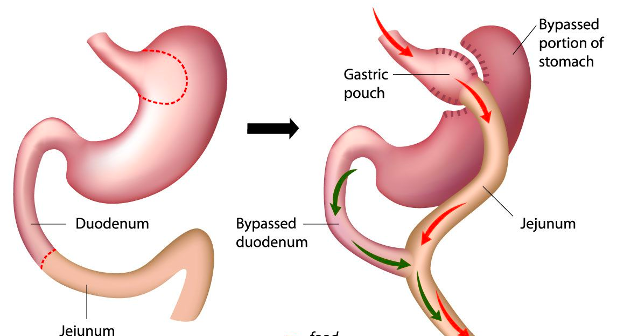Gastric Bypass Surgery is one of the most common weight loss surgeries that people are having all around the world. Gastric Bypass surgery, also called Roux-n-Y is a bariatric surgery type suitable for people whose BMI is over 30 and don’t have any health problem that might prevent them from having the operation.
In many countries, public health insurance is covering this treatment, at least theoretically. But even with the best health system, there are generally very long waiting lists to have the operation since it is not a very urgent operation. That is why as with all types of gastric surgeries, Gastric Bypass Surgery is growing fast in the sector of medical tourism. Patients living in the UK or Europe, also in the USA, travel abroad a lot to have Gastric Bypass Surgery which is more affordable with battery services. As patients from the USA are mostly travelling to Mexico, patients from Western Europe are travelling to Turkey for Gastric Bypass Operation, Roux-n-Y.
You can see some FAQs about Gastric Bypass Surgery before you decide on a clinic either in your home country or abroad.Wherever you go, you should do a good research about the surgeon and please be sure that you are ready for a long and tough period.
What is Gastric Bypass Surgery and How Does it Work?
Gastric bypass, also called Roux-en-Y , is a type of weight-loss surgery that is being operated by creating a small pouch in the stomach and connecting directly to the small intestine. After gastric bypass surgery, food will go into this small pouch of the stomach and then directly into the small intestine, so patients feel full shortly while eating.
Who is Suitable for Gastric Bypass Surgery?
Gastric Bypass is one of the most common surgeries being operated as a weight loss surgery in the world. And most of the patients are suitable if their BMI rate is more than 30, have no preventing medical problems; no drinking problems and psychology ready for the post-op period.
What is the Difference for Gastric Bypass Surgery and Gastric Sleeve Surgery?
Gastric Bypass is more complicated than Gastric Sleeve surgery. In Gastric Sleeve, it is operated by creating a pouch in the stomach and mainly focuses on reducing the size of the stomach.
In Roux-n-Y gastric bypass, it is a bit more complicated to operate but the aim is the same. Both aim to reduce the stomach for patients to get less food with less calories and lose fat fastly. If the patient is not certain which type will be better, it is suggested to consult with a surgeon to decide the best way specifically based on the case. Because depending on the case and medical conditions the surgeon might decide the type of the surgery.
How is the Weight Loss Timeline after Gastric Bypass Surgery?
Patients start to lose weight right after the operation and it is predicted for them to lose %70-80% of their excess weight at the end of the first year. Patients continue to lose weight in the second year and between 18-24 months, it is expected patients to reach their ideal weight.
What are the possible complications in the post-op period?
Since patients will be losing fat fastly, the body might react to this loss and patients need to be prepared for that. These side-effects are temporary changes in the body.Here are some of them that you might experience after gastric bypass surgery;
You may experience changes as your body reacts to the rapid weight loss in the first three to six months after gastric bypass, including:
- Body aches
- Feeling tired, as if you have the flu
- Feeling cold
- Dry skin
- Hair thinning and hair loss
- Mood changes





1 Comment
Pingback: All You Need to Know About Gastric Bypass Surgery - Health Reporter